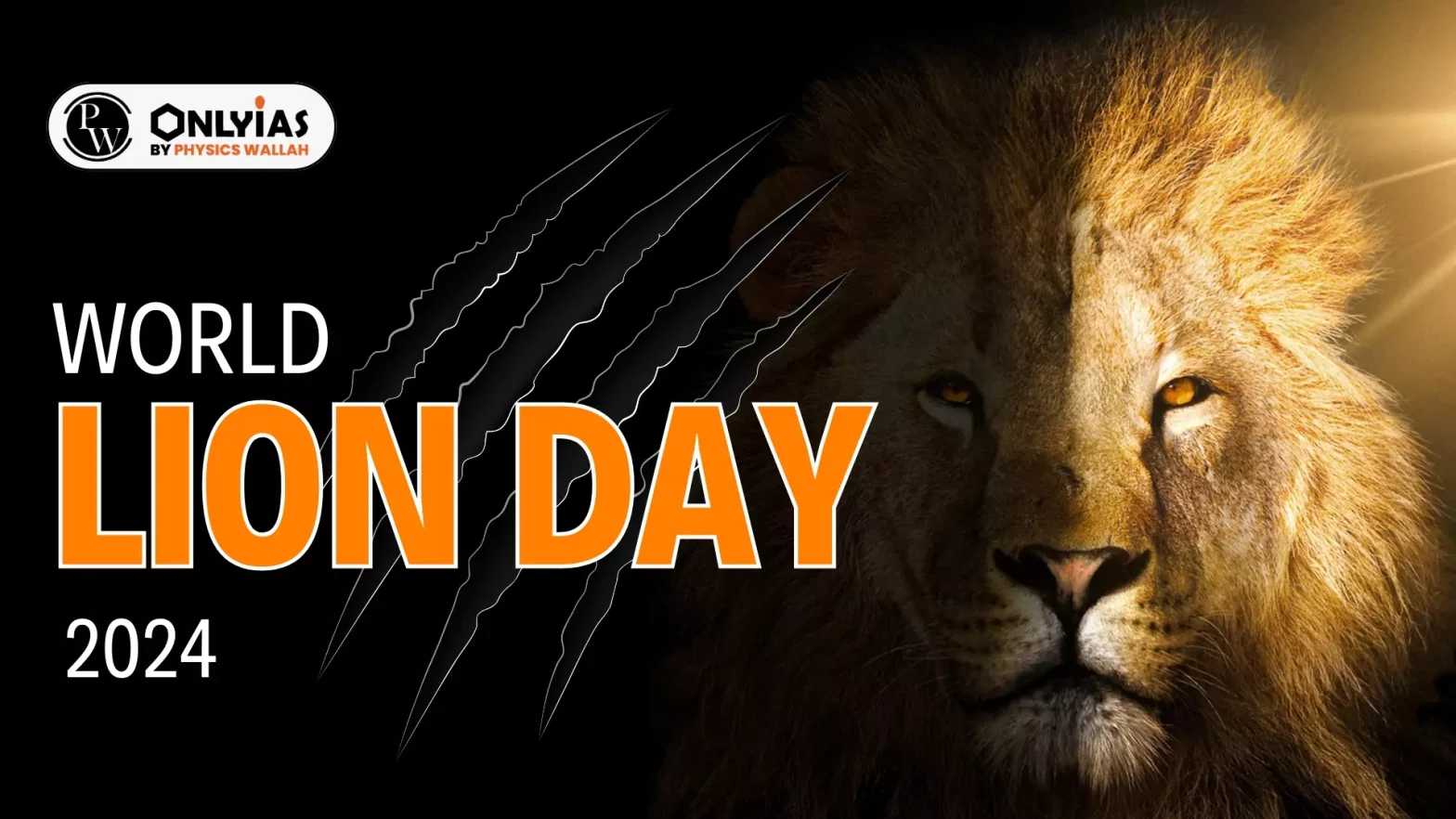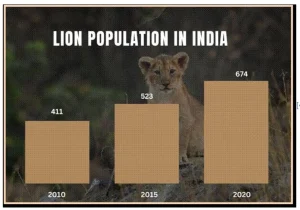Celebrate World Lion Day 2024 on August 10th by raising awareness for lion conservation. Learn about the significance, history, global population trends, and efforts like Project Lion and the International Big Cats Alliance to protect these majestic creatures.

World Lion Day 2024: Every year on August 10th, people around the globe come together to celebrate World Lion Day. This special day is dedicated to raising awareness about the conservation of lions and their habitats. As we approach World Lion Day 2024, it is essential to reflect on the significance of this majestic species and the efforts being made to protect them.
The theme for World Lion Day 2024 has not yet been officially announced. Usually, the theme emphasizes the importance of finding harmonious ways for humans and lions to coexist. It underscores the necessity of sustainable practices that protect lion habitats while supporting local communities.
World Lion Day was established to highlight the importance of lions to our ecosystems and cultures. The day serves to educate the public about the threats lions face and to mobilize support for their conservation. Celebrating World Lion Day helps to foster a global appreciation for these magnificent creatures and encourages actions to ensure their survival for future generations.
| Aspect | Details |
| Celebration Date | August 10th |
| 2024 Theme | Yet to be announced |
| Global Lion Population | Approximately 20,000 |
| Lion Population in India | Approximately 674 |
| Asiatic Lion vs. African Lion | Asiatic lions are smaller with a distinctive belly fold; found only in India (Gir National Park) |
| IUCN Status | Asiatic Lion: Endangered; African Lion: Vulnerable |
| Key Habitat in India | Gir National Park and Wildlife Sanctuary, Gujarat |
World Lion Day was established by Big Cat Rescue, one of the largest accredited sanctuaries dedicated to big cats, to highlight the importance of lions to our ecosystems and cultures. The initiative aimed to create a platform that raises global awareness about the declining lion populations and the urgent need for conservation efforts. The first World Lion Day was celebrated on August 10, 2013, and since then, it has become an annual event observed by wildlife organizations, conservationists, and animal lovers worldwide.
The significance of World Lion Day lies in its multifaceted approach to lion conservation:
Raising Awareness and Education: World Lion Day serves to educate the public about the critical threats that lions face, such as habitat loss, human-wildlife conflict, poaching, and climate change.
Promoting Conservation Efforts: The day highlights ongoing conservation initiatives and the work of various organizations dedicated to protecting lions and their habitats.
Celebrating Cultural and Ecological Importance: Ecologically, lions play a crucial role as apex predators, maintaining the balance of ecosystems by regulating herbivore populations. World Lion Day celebrates these aspects and underscores the importance of lions in our natural and cultural heritage.
Encouraging Sustainable Practices: With themes like “Living with Lions: Coexistence for a Sustainable Future,” World Lion Day emphasizes the need for sustainable human practices that allow for peaceful coexistence with lions.
Lions once roamed across Africa, Asia, and Europe, but today their populations are primarily confined to sub-Saharan Africa and a small region in India. The global lion population has drastically declined over the past century due to habitat loss, human-wildlife conflict, and poaching. Currently, the lion population in the world is estimated to be around 20,000 individuals, with the numbers continuing to decline.
India is home to the last remaining population of Asiatic lions. These lions are found exclusively in the Gir National Park and Wildlife Sanctuary in the state of Gujarat. As of the latest census, the population of lions in India stands at approximately 674 individuals. The conservation efforts in Gir National Park have been instrumental in stabilizing and slightly increasing the number of Asiatic lions.

While both Asiatic and African lions are awe-inspiring, they have distinct differences. Asiatic lions are slightly smaller than their African counterparts and have a distinctive fold of skin along their bellies. They also have shorter, sparser manes. The Asiatic lion’s range is restricted to the Gir National Park, whereas African lions are found across various countries in sub-Saharan Africa.
The International Union for Conservation of Nature (IUCN) lists the Asiatic lion as Endangered, highlighting the urgent need for continued conservation efforts. In contrast, African lions are classified as Vulnerable, though some populations are critically endangered due to severe habitat loss and hunting pressures.
Gir National Park, located in Gujarat, India, is the sole habitat of the Asiatic lion. Spanning approximately 1,412 square kilometers, the park provides a protected environment where these lions can thrive. Conservation initiatives in Gir National Park include anti-poaching measures, habitat restoration, and community engagement programs to mitigate human-lion conflicts. These efforts have been crucial in preserving the Asiatic lion population.
Enroll in our UPSC PW Online Coaching to get expert and the best resources to prepare for UPSC Examination.
World Lion Day is celebrated to raise awareness about lion conservation, educate the public on the challenges lions face, and promote efforts to protect these majestic animals and their habitats.
The theme for World Lion Day 2024 is yet to be announced.
The global lion population is estimated to be around 20,000 individuals, with numbers continuing to decline due to various threats.
The population of lions in India is approximately 674, all of which are Asiatic lions residing in Gir National Park and Wildlife Sanctuary.
Asiatic lions are slightly smaller, have a distinctive belly fold, and have shorter, sparser manes compared to African lions. They are found only in the Gir National Park in India.
The Asiatic lion is listed as Endangered by the IUCN, while the African lion is classified as Vulnerable, with some populations critically endangered.
<div class="new-fform">
</div>